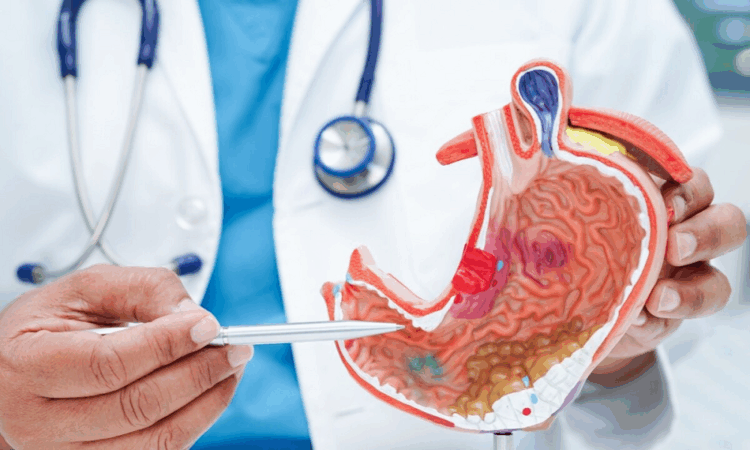
Oral cancer is a type of cancer that affects the mouth, tongue, gums, and throat. It often begins with subtle oral cancer initial symptoms that may be mistaken for less serious conditions. However, if left undiagnosed or untreated, it can progress to more advanced stages. By the time oral cancer reaches its last stage, the symptoms become more severe and can significantly impact the patient’s quality of life.
In this blog, we will explore what to expect in the oral cancer’s last stage symptoms. Knowing what the final stages of oral cancer look like can help patients, caregivers, and family members understand what to expect during this challenging time and make informed decisions about care and comfort.
Oral Cancer: What You Should Know
Oral cancer includes cancers that affect the lips, tongue, gums, cheeks, floor of the mouth, hard and soft palates, and throat. While it can occur in anyone, certain risk factors—such as tobacco use, heavy alcohol consumption, poor diet, and HPV infection—greatly increase the chances of developing the disease.
Oral cancer is typically diagnosed when it has reached an advanced stage, and unfortunately, many cases aren’t caught early enough. The initial symptoms of oral cancer can often be overlooked because they may seem mild and are similar to other less serious health issues. Early signs include:
- Persistent mouth sores or ulcers that don’t heal
- White or red patches in the mouth
- Difficulty swallowing or chewing
- Unexplained pain in the mouth or throat
- A lump or thickening in the cheek or neck
However, once oral cancer reaches the last stage, the symptoms become more severe, and the disease often spreads beyond the initial site.
What are the Oral Cancer Last Stage Symptoms
When oral cancer advances to the last stage (Stage IV), it typically has spread to nearby lymph nodes, other parts of the body, or both. At this stage, the tumor is large, and the cancer has often infiltrated surrounding tissues and organs, which makes it harder to treat. The last-stage symptoms of oral cancer can be distressing, but understanding them can help prepare for the care and emotional support that may be needed.
- Severe Pain
One of the most significant symptoms of oral cancer in its final stages is severe pain in the mouth, jaw, or throat. As the tumor grows and invades surrounding tissues, it can cause intense pain. This pain may become constant, and over-the-counter pain medications may no longer be effective.
Why does it happen? Pain occurs because the cancerous growth puts pressure on nerves and other sensitive tissues in the oral cavity. In addition, the tumor may cause inflammation and bleeding, contributing to discomfort.
Managing the pain:
At this stage, stronger pain management techniques, including prescription medications or palliative care, may be required to keep the patient comfortable.
- Difficulty Swallowing and Chewing
As the cancer progresses, it can impair the ability to swallow or chew food. Tumors located in the mouth, tongue, or throat can block the passage of food and liquids, making it painful and difficult for the patient to eat or drink.
Why does it happen:
As the tumor grows, it may obstruct the throat, esophagus, or other digestive structures. Swallowing becomes more challenging, and in advanced cases, it may be accompanied by choking or aspiration (food entering the airway).
What to expect:
Patients may require modified diets or feeding tubes to ensure they are still receiving adequate nutrition. Speaking with a dietitian or speech therapist may be beneficial for managing this issue.
- Excessive Bleeding
In the advanced stages of oral cancer, bleeding becomes more common. This can occur due to ulceration of the tumor or the erosion of blood vessels as the cancer spreads. The patient may notice blood in their saliva or experience spontaneous bleeding from the gums, mouth, or throat.
Why does it happen? As the tumor grows, it can disrupt the normal structure of the tissues in the mouth, causing them to bleed easily. The cancer may also affect blood vessels, leading to internal bleeding.
Managing bleeding:
Managing bleeding at this stage may involve careful monitoring, especially during oral care. Your doctor may suggest medications to help with clotting or other interventions to reduce the risk of severe bleeding.
- Difficulty Breathing or Hoarseness
As the tumor spreads to the throat and the surrounding airways, it can lead to difficulty breathing. This may be accompanied by a persistent cough or hoarseness. In some cases, if the tumor obstructs the airways, patients may experience significant difficulty breathing, which may require medical intervention.
Why does it happen:
The tumor may press against the airway, making it harder to breathe properly. Additionally, the spread of cancer to the larynx (voice box) can lead to hoarseness and voice changes.
What to expect:
Doctors may use oxygen therapy or other breathing aids to improve the patient’s breathing. In some cases, a tracheotomy (an opening in the windpipe) may be performed to facilitate easier breathing.
- Weight Loss and Malnutrition
Severe weight loss and malnutrition are common in the final stages of oral cancer. As swallowing becomes more difficult, patients may be unable to consume enough calories to maintain their weight. This, combined with the body’s increased energy demands as it fights the cancer, can lead to significant weight loss.
Why does it happen? The inability to eat and digest food, along with the body’s efforts to combat the cancer, results in muscle wasting and weight loss. Malnutrition can also weaken the immune system and make it harder for the body to recover.
What to expect:
Nutritional support through feeding tubes or intravenous (IV) fluids may become necessary. Palliative care teams often help manage these issues by providing comfort-focused care and assisting with weight management strategies.
- Swelling and Lymph Node Involvement
By the time oral cancer reaches the last stage, swelling in the neck or jaw is often present due to the spread of cancer to the nearby lymph nodes. The lymph nodes become swollen as they try to filter out cancerous cells, leading to noticeable lumps or tenderness in the neck area.
Why does it happen:
Cancer cells can spread through the lymphatic system to the lymph nodes, causing them to become enlarged and tender. This may cause visible swelling in the neck or jaw.
What to expect:
In advanced stages, the lymph nodes may be significantly enlarged, causing discomfort and affecting the patient’s appearance. In some cases, radiation or chemotherapy may help shrink the lymph nodes and relieve discomfort.
- Fatigue and Weakness
Extreme fatigue and weakness are common symptoms in the final stages of oral cancer. The body’s energy is focused on fighting the cancer, which can leave the patient feeling exhausted. The combination of pain, difficulty eating, and other symptoms can exacerbate this fatigue.
Why does it happen:
The body’s efforts to fight cancer, along with the physical toll of the disease, result in severe exhaustion. Lack of nourishment and dehydration may also contribute to weakness and fatigue.
Managing fatigue:
Palliative care can help manage fatigue by providing rest periods, ensuring proper hydration, and offering medications that may help alleviate some of the symptoms.
Palliative Care: Supporting the Patient
In the last stages of oral cancer, palliative care becomes a central part of treatment. Palliative care focuses on relieving symptoms and improving the quality of life for patients with advanced cancer. It is not aimed at curing the cancer but at ensuring the patient is as comfortable as possible.
Palliative care teams provide support for pain management, emotional well-being, and practical needs, helping both the patient and their family navigate this challenging time.
Conclusion
Late-stage oral cancer can be stressful, but being aware allows patients, families, and caregivers to plan. Severe pain, difficulty swallowing, weight loss, and swelling are among the most common symptoms. At this point, treatment focuses on symptom relief, with palliative care providing crucial comfort and support.
If you or a loved one notices early signs of oral cancer, contact a doctor right away. Early detection improves treatment outcomes, increases survival rates, and slows disease progression, allowing for more effective management.
Book your appointment now to get a thorough evaluation and personalized care from a healthcare professional.




